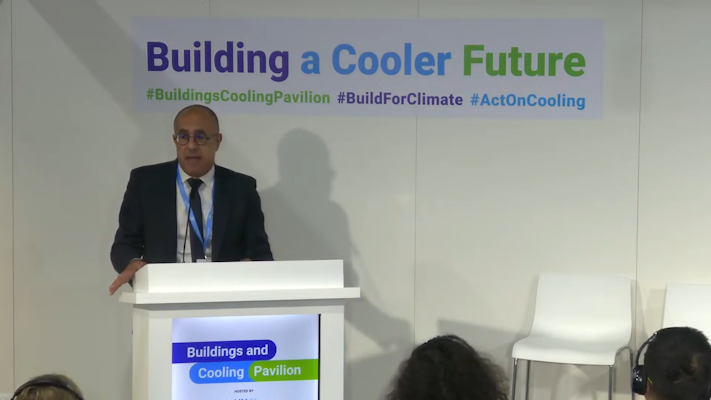From Discussion to Action: COP29 Event Tackles Urban Heat with a Call for 'Radical Collaboration'
BAKU, AZERBAIJAN — As global temperatures continue to rise, the issue of urban overheating is no longer a problem for the future; it's a crisis demanding immediate action. This was the central message of the "Keeping Communities Cool: effective interventions for neighbourhoods and buildings" session held at the COP29 Buildings and Cooling Pavilion. The event brought together leading experts from around the world to discuss integrated solutions for a problem that disproportionately affects the most vulnerable populations.
Dr. Sameh Wahba, Regional Director for Sustainable Development in Europe and Central Asia at the World Bank, set the stage with a sobering look at the scale of the challenge. "Extreme heat is a 'now issue' that has a compounding effect on other climate-related disasters," he stated, highlighting that by 2030, heat-related deaths could reach 60,000 a year. He emphasized the stark socioeconomic inequality of this crisis, noting that low-income neighborhoods, which often lack green spaces, can be up to 12°F hotter than more affluent areas. Following his remarks, Jo da Silva, Global Sustainable Development Director at Arup, discussed how to confront the disruptive impact of overheating and identify key solutions at the city and building scales.
The event stressed that effective solutions require a holistic, multi-layered approach. The discussion moved beyond the traditional reliance on air conditioning—a technology that creates a vicious cycle of energy demand and increased urban heat—to focus on passive cooling techniques and green infrastructure. Experts highlighted strategies like designing buildings to maximize wind flow, planting trees to provide shade and reduce flooding, and using reflective materials on roofs. A key point was the critical need to retrofit existing buildings to make them more energy-efficient, a measure that requires financial incentives and partnerships between policymakers and financial institutions.
Panelists Advocate for Integrated Solutions
The event culminated in a panel discussion moderated by Peter Vangsbo of Arup's Climate and Sustainability Services. The panelists included:
Yasemin Somuncu, an architect, passive house designer, and trainer with SEPEV, representing the Women in Renewable Energy (WiRE) network as the WiRE Türkiye Chapter Leader.
Mr. Zhang Weijie, Divisional Director of Energy and Climate Policy at the Ministry of Sustainability and the Environment, Singapore.
Mirey Atallah, Head of Adaptation and Resilience at the UNEP.
Farrukh Shad, Head of Sustainability Business for the APMEA Region at Schneider Electric.
The panel underscored the power of what was termed "radical collaboration"—a 'team sport' involving governments, private companies, research institutions, and civil society. This cross-sector partnership is essential for translating discussions into actionable plans. Mr. Weijie shared insights from Singapore’s approach to urban cooling, while Ms. Atallah provided a global perspective on adaptation strategies. Mr. Shad emphasized the need for new financial models to incentivize change, such as performance-based sustainability targets for company leaders.
The session concluded with a clear call to action: moving from a focus on the problem to a focus on implementation. The goal, as Farrukh Shad pointed out, is to "revive the wisdom in traditional approaches" to urban design and challenge the notion that certain modern materials are always a sign of progress. This means fostering a mindset shift and creating financial models that align economic incentives with climate goals. The event served as a powerful reminder that while the urban heat crisis is urgent, collaborative and integrated solutions are within reach.
Written by:
Andrew Osawe,
Director of Operations,
Women in Renewable Energy (WiRE)



